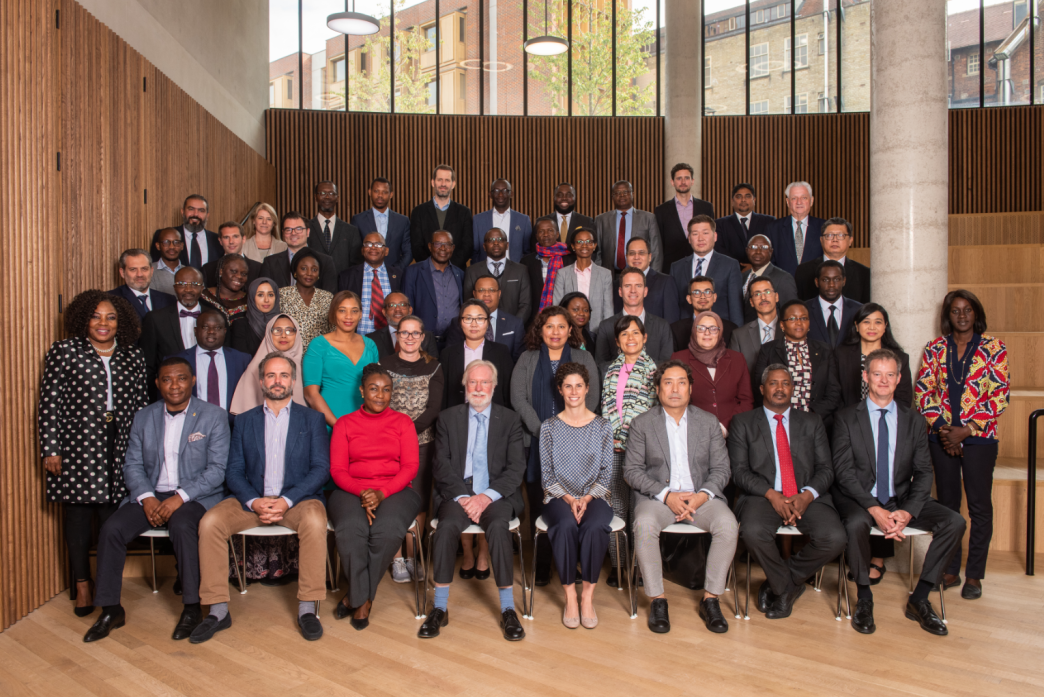
Planning for the Future: A Conversation About Indonesia’s Hydrocarbon Trajectory
Crude oil production in Indonesia—a pioneer in production sharing contracts and in the commercialization of liquefied natural gas—has been on a downward trend since reaching peak production in 1994. Mohammad Kemal, the lead business strategist at Indonesia’s Special Taskforce for Upstream Oil and Gas Business Activities (SKK Migas), is in charge of developing Indonesia’s long-term plan for the oil and gas industry from 2020 to 2030. Along with 49 other senior executives, he participated in the 2019 Executive Course on Oil, Gas and Mining Governance, co-hosted by Oxford University’s Blavatnik School of Government and the Natural Resource Governance Institute (NRGI). I caught up with him to learn more about his experience at the course and how it relates to his everyday work.
Daniel Davies: How did you first become interested in resource governance?
Mohammad Kemal: I got interested in resource governance because of how important it is to exploit resources in the right way—they can either help or hinder economic growth. Like the U.K., Indonesia is facing declining reserves and declining investment, and globally we need to address the market challenges posed by things like the energy transition and excess supply from U.S. shale gas. We therefore need a long-term plan.
How did you find out about the executive course, and what drew you to it?
I found out about the course on Twitter—I follow people and organizations involved in the energy sector, including NRGI. I saw that the big names in the field would be teaching, that it was at the Blavatnik School of Government, which is very highly regarded, and that NRGI was involved as well, so I figured that it would be a good opportunity. The other people in the course are senior-level with interesting points of view and experiences.
 During the course, you recommended a range of articles to the other participants. Had you read anything by the course faculty beforehand?
During the course, you recommended a range of articles to the other participants. Had you read anything by the course faculty beforehand?
Yes, I had read Sir Paul Collier’s work previously, of course, so it was exciting to meet him, and I followed Valerie Marcel [course lecturer and associate fellow at Chatham House] on Twitter because of her work on national oil companies (NOCs). [The course] provided me with new insights, particularly the materials regarding the NOCs—it totally aligns with what I’m doing now.
There seemed to be a strong sense of camaraderie at the course this year. Have you kept in touch with other participants?
We created a WhatsApp group of our own, to bond ourselves together beyond the course. We’re still communicating regularly, sharing thoughts, geopolitical insights, news about local issues and updates on whether people are presenting or attending events. I’m also still networking with some of the professors—Valerie Marcel is assisting with trying to get Indonesia into the New Petroleum Producers Group. She invited me to attend an upcoming meeting of theirs.
What would some of the advantages of joining the new producers group be?
Cost benchmarking and training. Countries in the group are far away, so to some extent the value of benchmarking is limited; but it would open up opportunities for sharing data and accessing continued training. Also, regarding trainings, I’ve proposed that my colleagues join the NRGI regional course in Yogyakarta, Indonesia.
In addition to your work on establishing a long-term plan, you also occasionally do presentations. Did you take any tips from the course?
Definitely. Professor Collier of course had a good foundation in theory, but also is able to explain it in a practical way, and this has given me some ideas about how to show others how theory can be applied in terms of natural resource governance.
Daniel Davies is a capacity development program associate at the Natural Resource Governance Institute.
Photos by John Cairns.

